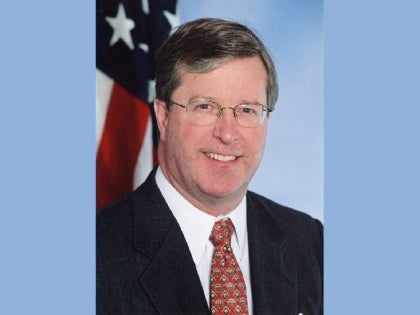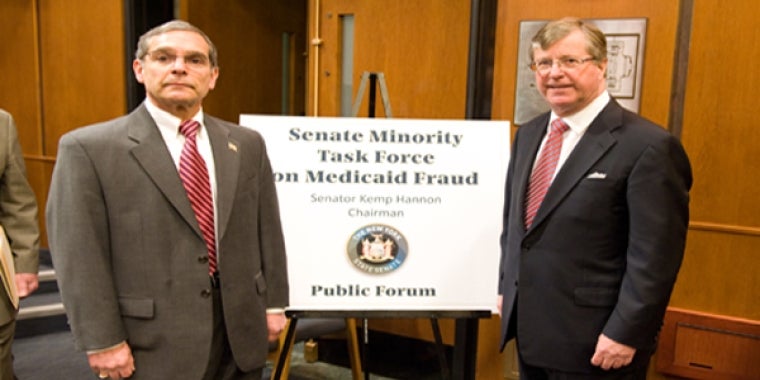
Winner Joins Effort To Combat Southern Tier Meth Crisis

Albany, N.Y.-- State Senator George H. Winner, Jr. (R-C, Elmira) will sponsor legislation in the Senate to make it easier to prosecute manufacturers of the illegal drug methamphetamine and to create a new class of crime for operating a meth drug lab in a residential neighborhood.
Winner’s legislationwill also seek to allow prosecutors to target property owners and landlords who knowingly allow meth manufacturers and sellers to operate on their premises.
"I’ll do whatever I can to assist and encourage the regional effort to battle this drug crisis. We know that strict laws, aggressive law enforcement and community awareness are fundamental weapons in our fight to drive the manufacturers and sellers of meth out of our region. I will work with our region’s law enforcement officers, district attorneys, educators, first responders and others to do whatever I can to help ensure that they have the laws and the resources they need to carry on this battle and protect our neighborhoods," said Winner, who was recently appointed as a member on the Senate Crime Victims, Crime and Correction Committee.
Winner’s legislation would:
> create a new crime for the "criminal manufacture of methamphetamine in or near a residence." This new crime would be a Class D felony and impose strict penalties for setting up or operating illegal meth labs within 500 feet of a dwelling. Winner noted that since the manufacture of meth includes the use of highly explosive, flammable and toxic chemicals, meth labs pose a significant public health and safety threat if located in residential neighborhoods;
> create a new crime, punishable as a Class E felony, for "operating a controlled substance establishment" that would hold the owners of a building, room or any other dwelling criminally responsible for knowingly and intentionally allowing meth manufacturers and sellers to operate on the premises they own; and
> make it easier to prosecute the operators of meth labs by expanding the scope of New York’s drug laws. While some common chemicals, like the cold medication pseudoephedrine, are used to manufacture meth, toxic and flammable ingredients used to manufacture the drug include a common agricultural fertilizer known as anhydrous ammonia, phosphorus, metallic sodium and ether. Federal law imposes tough criminal penalties on people who, with the intent to manufacture meth, possess just one of a number of listed ingredients. New York's current controlled substances precursor law punishes only people who possess a combination of chemicals with the intent to manufacture a drug illegally. Winner’s legislation would note the particular hazards of meth production by adopting the federal standard that only one of a designated list of ingredients must be found in the possession of a person, who a jury concludes intends to manufacture meth, in order to support a Class E felony conviction of "criminal possession of precursors of controlled substances."
Winner is also monitoring a state law enacted last year, sponsored by then State Senator John R. Kuhl, Jr., which authorized the New York State Police and the state Department of Environmental Conservation (DEC), together with the state departments of Health and Agriculture and Markets, to study the use in New York of a chemical additive known as "ferrocene." The use of this additive could ensure that anhydrous ammonia -- which is an important chemical used as fertilizer in farming operations, but is also a key ingredient used to manufacture meth -- could only be used for legitimate farming purposes. The law requires a report to be issued by April 2006 on the feasibility of chemically altering anhydrous ammonia to prevent its use in meth manufacturing.



